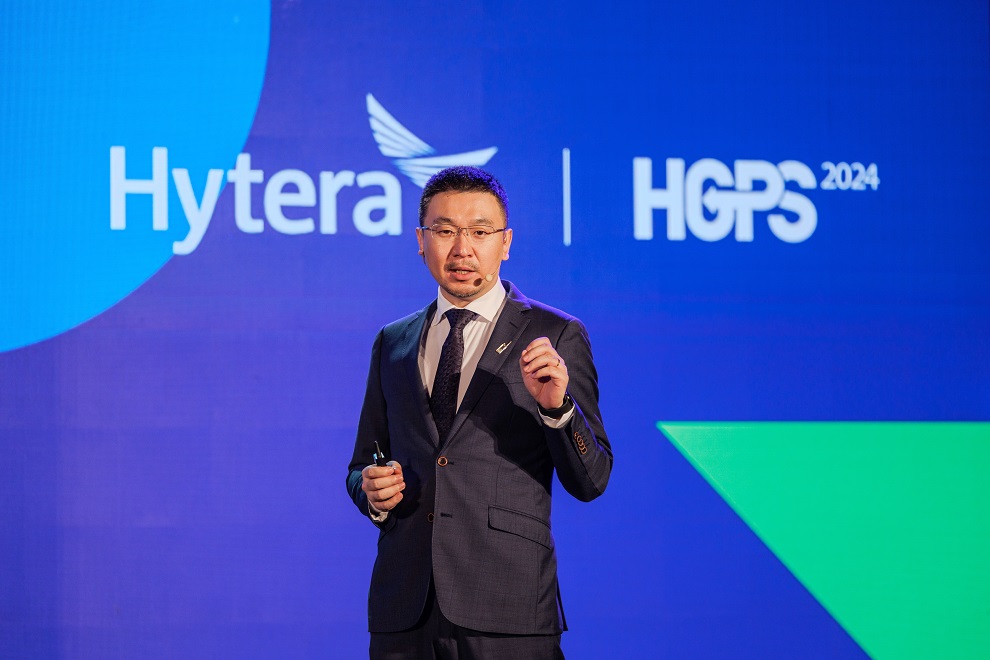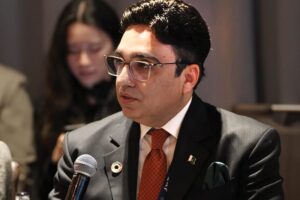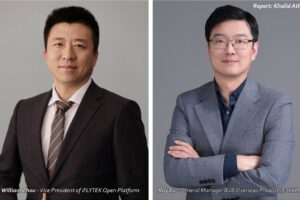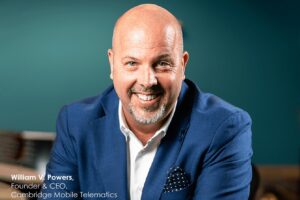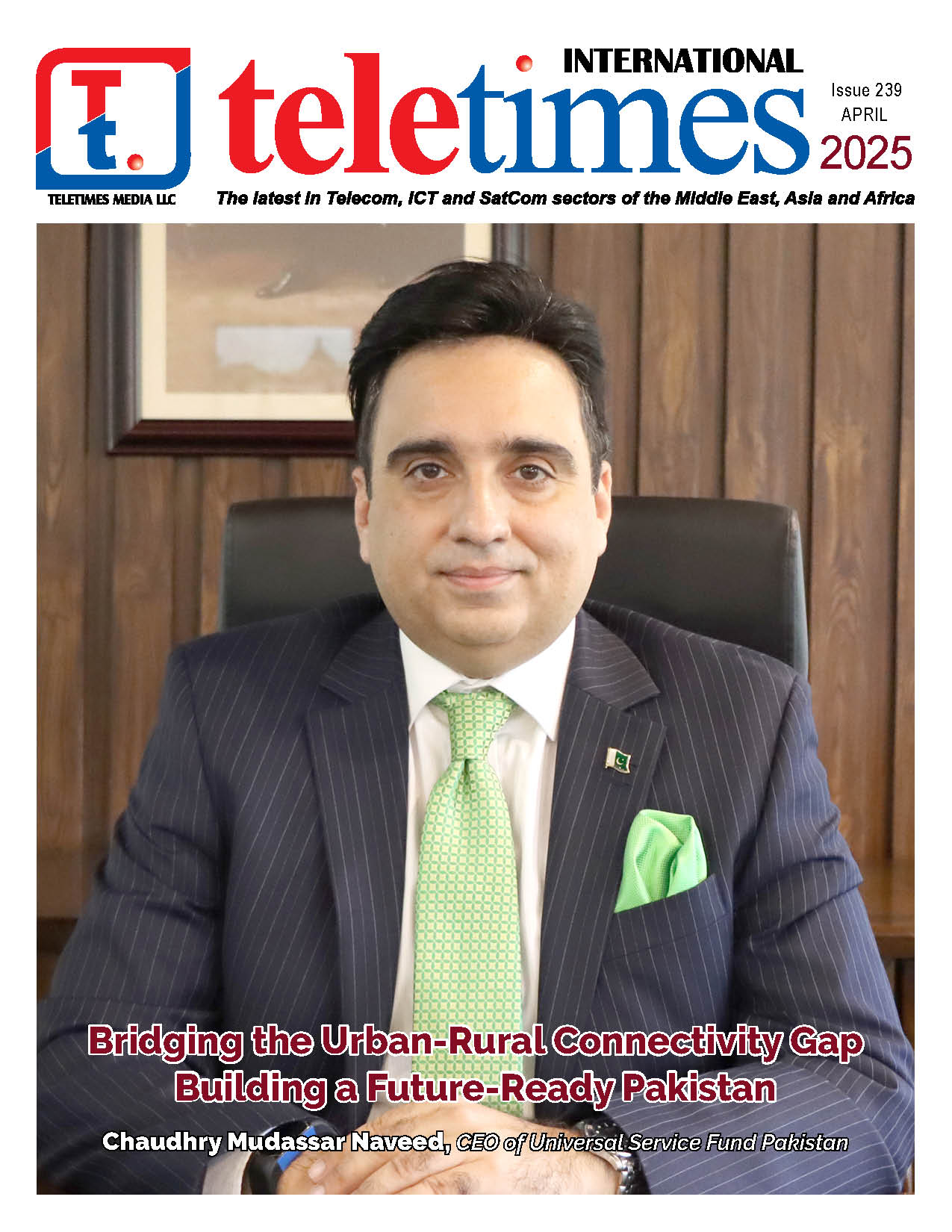Stanley Song, Deputy General Manager, Oversea Sales Department at Hytera, talks to Teletimes International about the evolving customer needs in the mission-critical and business-critical communication markets
Khalid Athar: How has Hytera strategically expanded its presence in the Middle East market, considering factors such as partnerships, investments, and market penetration strategies?
Stanley Song: As a leading professional two-way radio solution provider, Hytera entered the Middle East market in 2005. Now, in 2024, we’ve been in this market for almost 20 years. We started in UAE in the early 2010s. However, when entering a new market, it’s extremely difficult to penetrate sectors like the public safety, for example, Ministry of Interior. We began with vertical markets like hospitality, such as hotels and restaurants. As more users became familiar with Hytera products, we expanded into other vertical markets like oil and gas. Today, we are proud to be the number one supplier for the oil and gas industry in the Middle East.
In this region, ADNOC in the UAE, as well as Saudi Aramco, SABIC, KIPIC, KNPC, and PDO, are among our biggest customers. We supply equipment to ensure safe production, efficiency, and manufacturing. After our success in vertical markets, we entered the public safety sector. Now, after 20 years, we are at the top in this field. For instance, the Abu Dhabi Police, UAE Ministry of Interior, Saudi Ministry of Interior, and Qatar Ministry of Interior all use Hytera devices to secure cities and protect citizens.
Regarding partnerships, 99% of Hytera’s business relies on local partners. As an international company, we cannot do everything by ourselves, especially given the cultural differences. We work with local partners, providing support and engaging with customers to secure business. Looking to the future, we aim to align with initiatives like Saudi Vision 2030 and similar UAE visions, involving local manufacturing and investments. We are actively engaging with authorities to potentially establish Hytera-certified manufacturing in the region.
“Looking to the future, we aim to align with initiatives like Saudi Vision 2030 and similar UAE visions, involving local manufacturing and investments”
Khalid: Reflecting on Hytera’s ten-year anniversary in Dubai, how significant is this milestone in the company’s journey within the Middle East, and what impact has it had on its presence and reputation in the region?
Song: As I mentioned, we started our business in 2005 in the region, but we established our subsidiary in UAE by late 2013, completing everything by early 2014. Now, in 2024, we are celebrating our 10-year anniversary. Initially, we operated with a Chinese team on travel basis. We now have a local office with local employees and engage with local partners to serve local customers. This milestone signifies our integration into the region, and our plan for the next ten years includes further localization, potentially including local manufacturing.
Khalid: What factors contribute to Hytera’s leadership position in the telecommunications and critical communications sector within the Middle East region?
Song: We mainly serve three categories of customers: public safety, utilities, and transportation. In public safety, we have numerous references from Ministries of Interior across the Gulf countries. We also serve utilities, including oil and gas, electricity, and transportation sectors such as metro, airport, and seaport. We began with commercial markets like hospitality, where our radios are even used here inside the World Trade Centre. We believe we are the largest supplier in this field in the Middle East.
The number one factor is that we deliver more value to users by constantly realizing innovation in our products and the feature sets, no matter it’s digital two-way radios, dual-mode LTE radios, body camera, or control room solutions.
Khalid: In what ways do emerging technologies, such as AI and IoT, impact the future of critical communication systems and their capabilities?
Song: Hytera started with two-way radios in 1993, dedicating the first 25 years to narrowband, push-to-talk voice communication. In 2017, we began investing in broadband and emerging technologies, including LTE, body cams, and smart 5G and 4G devices. The Middle East is leading in digital transformation, and Hytera is actively supporting this transition. We now offer dual-mode radios combining 4G, 5G, and PMR in one device. For instance, the Abu Dhabi Police use around 5,000 of these devices for daily operations, integrating traditional PMR for voice communication and advanced features for data collection and applications. We also help deploying body cams for frontline officers in the UAE and other GCC countries.
Khalid: Can you provide examples of real-world scenarios where effective critical communication systems have played a significant role in mitigating risks and saving lives?
Song: Yes, we have many examples. In our field, especially for public safety, mission-critical communication is paramount. Safety and reliability is the number one priority. Recently, during a major flood in the UAE and Oman, the public networks were temporarily unavailable in some heavily hit places. The police’s dedicated systems were the only means of communication for police and emergency responders, enabling them to coordinate rescue efforts and save lives during the two-day emergency.
Khalid: What strategies can organizations employ to continuously improve their critical communication systems and adapt to evolving challenges and requirements?
Song: “Innovate for a Safer World” is the theme our latest branding campaign. That’s what we believe in and what we have been doing. Our customers fall into three categories: mission-critical, business-critical (like oil and gas), and commercial markets. Safety of the team and operation is the bottom line. Our technologies facilitate government authorities and business owners alike for their effort of protect their staff. On top of that, we leverage LTE and other technologies to boost the customers’ operation efficiency. To address evolving challenges, we believe convergence is the way. Traditional PMR is perfect for reliable voice communication, but today’s operation requires data as well. Since 2017, we’ve integrated LTE technologies, providing push-to-x for video, messaging, location data, and more. What we are doing and our customers are adopting is to combine reliable PMR voice communication with high-speed data to meet evolving needs.
“Traditional PMR is perfect for reliable voice communication, but today’s generation requires data as well. Since 2017, we’ve integrated LTE technologies, providing push-to-talk for video, messaging, location data, and more”
Khalid: We do see some telecom operators are venturing into the sector such as public safety. Are they a strong competition for you?
Song: With the ongoing expansion of broadband services in the Middle East, LTE and 5G NR mobile networks are gaining recognition as alternative platforms for providing push-to-talk and multimedia services. Mobile network operators like STC in Saudi Arabia, Vodafone and Ooredoo in Qatar, and Omantel in Oman have been playing an increasingly important role in the market by introducing broadband PTT services for public safety and industrial users in recent years.
These operators leverage their extensive network coverage to provide comprehensive broadband PTT solutions that integrate devices, services, and traffic into a single package. This approach offers several benefits, including reducing network maintenance and construction costs for their customers. We do believe operators are in a good position of creating value for professional users. At the same time, operators do need to work with vendors such as Hytera to actually serve the customers well. While operators have the coverage, they do need the right user devices such as portable and mobile radios, and mission-critical applications. That’s why we are having more operators becoming our partners, also customers, in the region.
With the completion of 3GPP Release 15 and Release 16, the Mission Critical Services, usually we call MCX, has become mature. Leading vendors such as Hytera have created a multi-layered convergence solution that seamlessly integrates TETRA and LTE for unified and enhanced PTT. Hytera’s open-standard and award-winning solution of MCX have been adopted by many operators to serve their customers of public safety, as well as sectors such transportation and utility.
To answer your question, yes, there is competition, but not detrimental to Hytera’s business. Instead, we are proud of having been working with operators in the region and it is generating an increasingly important business for us.
Khalid: What is Hytera’s vision for the future of its operations in the Middle East, and how does it plan to continue its growth and development in the region?
Song: Celebrating our first 10-year anniversary in the UAE is just the beginning. We will continue to serve mission-critical, business-critical, and commercial markets. We are actively working with government authorities to support localization initiatives. This includes not only hardware but also joint R&D centers with customers to develop local applications and features, enhancing our ability to serve their missions effectively.


